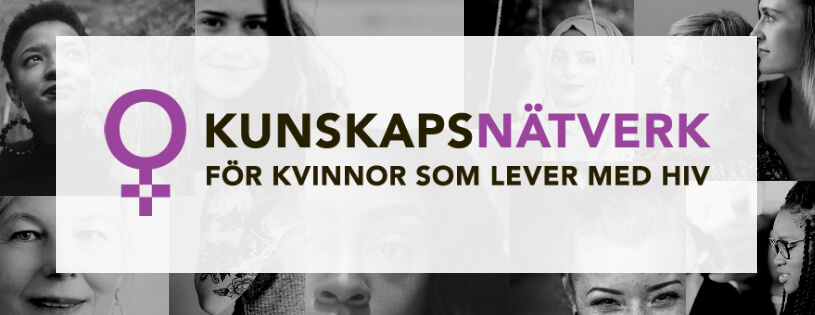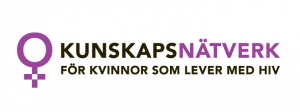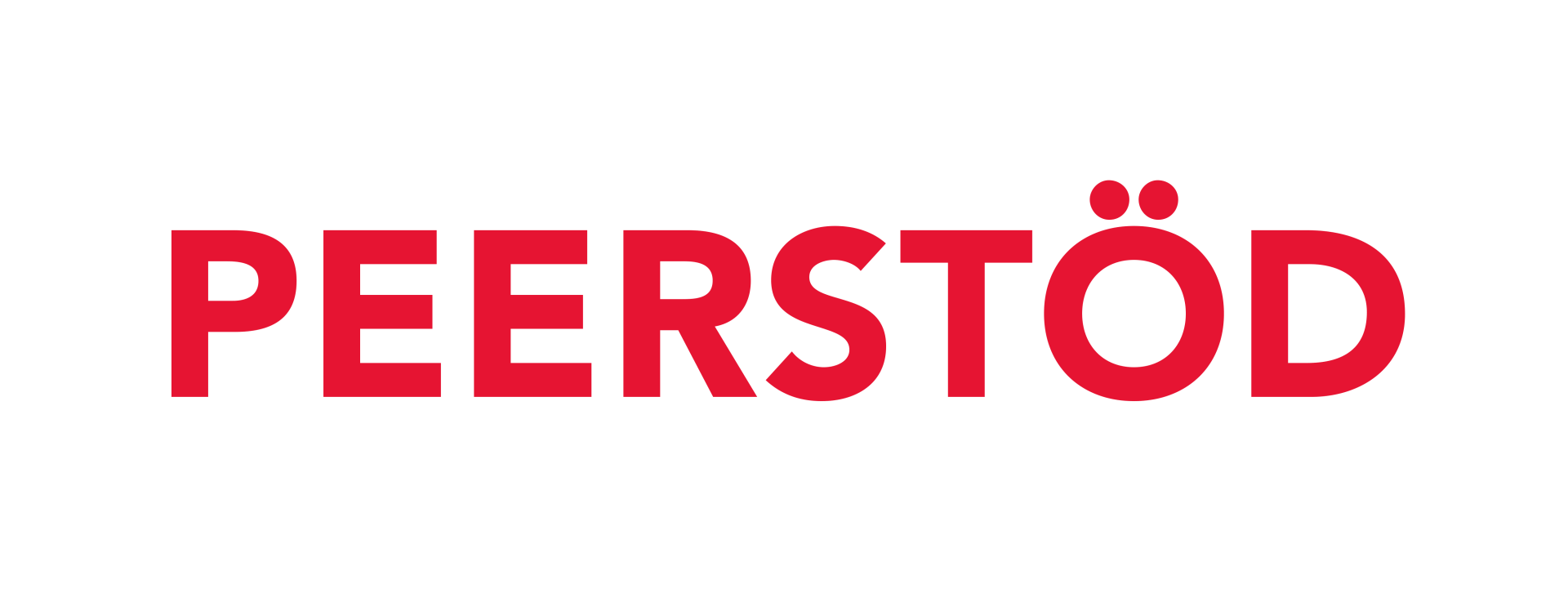Information about the Knowledge network for women living with HIV

Knowledge Network for Women who are Living with HIV is Posithiva Gruppen’s program area for women. The purpose of the network is to increase knowledge within the target group (women living with HIV) but also to increase knowledge about women and HIV in society at large. All HIV-positive women who wish to increase their own or society’s knowledge about HIV are welcome to actively participate in the network.
Two HIV-positive women took the initiative to form the network back in 2015. They were frustrated about the fact that women were given low priority in issues concerning HIV in Sweden. They were fed up with ignorance, invisibility, and stigma. Since 2017, the network has been a program area within Posithiva Gruppen (PG), Sweden’s largest patient organization for people living with HIV.
What do we do in the Knowledge Network?
The Knowledge Network for Women who are Living with HIV organizes seminars/lectures, workshops, and events. The activities are usually organized in Stockholm, occasionally in other cities, as well as online. If you want to participate in an activity that takes place in Stockholm but cannot afford to cover costs for travels, you can contact us, and we will solve the situation. Participation in the Knowledge Network’s activities is always free of charge.
Here, on the Knowledge Networks sub-website, you can read about past events such as seminars and conferences, but also about the rights of women living with HIV. The Knowledge Network also has its own pages on Facebook and Instagram.
What topics are we working on in the Knowledge Network?
Examples of topics that we are working on in the Knowledge Network for Women who are Living with HIV are: ageing, breastfeeding, medical side effects, rights, relations, co-morbidity, stigma, and quality of life.
Women who are involved in the network are the ones who suggest which topics should be raised in the network. If you are a woman living with HIV, you are welcome to propose topics by contacting us directly via e-mail or phone, or by answering the Knowledge Network’s digital survey (available in Swedish or English).
Contact
If you have questions about the Knowledge Network/Posithiva Gruppen’s program area for women living with HIV, or if you wish to get involved, do not hesitate to contact us at info@kunskapsnatverk.se or (+46)(0)70-040 77 81. If you want to send us something by mail or to visit our office, our address is Östermalmsgatan 5, 114 24 Stockholm, Sweden.
YOUR RIGHTS AS A WOMAN LIVING WITH HIV IN SWEDEN
(Updated December 2021)
Within HIV healthcare
If you are HIV-positive you have the right to free doctor’s appointments, testing and treatment that is related to your HIV diagnose. Treatment of other diseases is not free, and you will have to pay normal patients’ fee for other (non-HIV-related) medical visits. Medication which is prescribed by a doctor, and which is assumed to reduce the HIV viral load, is also free of charge. If you are HIV-positive you even have the right to psychosocial support (for example sessions with a psychologist or curator).
When you are diagnosed with HIV, the HIV doctor will give you some rules of conduct (“förhållningsregler”). According to the Swedish Communicable Diseases Act chapter 4 § 3, you have the right to appeal against (complain about) the rules of conduct that are given to you. As an example, if you have undetectable HIV, you can ask the doctor to be exempt from the obligation to disclose your HIV status before having sex with someone.
Short summary:
- All treatment and medication related to HIV is free.
- You can talk to your HIV doctor about changing your rules of conduct.
Within regular (non-HIV) healthcare
For healthcare that is not directly linked to HIV, you should go to your local health clinic (“vårdcentral”). When visiting your local clinic, you will have to pay a fee. The fees differ depending on whether the visit is within primary healthcare, emergency healthcare or specialist healthcare. For example, in Stockholm, you pay 200 SEK when visiting a doctor at your local clinic/vårdcentral and also in local emergency facilities (“närakut”). If you visit a hospital’s emergency facilities, you pay 400 SEK and seeing a doctor at a specialist clinic costs 350 SEK. If you live in a different county than Stockholm, the fees may differ.
Every time you visit a healthcare facility, this is registered electronically. If you spend 1150 SEK on healthcare visits during a period lasting less than 12 months, visits will be free for what is left of the 12 months. When you have reached the 1150 SEK, you have what is called a “Frikort” or “Högkostnadsskydd” (“high-cost protection”).
There is even high-cost protection for prescription drugs (medication). The high-cost protection entails that one shall not pay more than 2350 SEK for prescription drugs during a period of one year (12 months). The year is called a high-cost period (högkostnadsperiod).
Some visits to non-institutional healthcare are always free of charge. Some examples are:
- Visits to maternity- and children’s healthcare clinics (“MVC” and “BVC”)
- Mammography screening in the age group 40 – 74 years
- Visits to the school nurse (including the vaccines that are offered through the school healthcare)
- Medical visits for children and adolescents (normally up to 20 years of age)
- Non-institutional healthcare visits for patients over the age of 85 years
Short summary:
- A normal visit to the doctor costs around 200 SEK, depending on where in the country you live.
- You shall not pay more than 1150 SEK for doctor’s visits per year (as of year 2021).
- You shall not pay more than 2350 SEK for prescribed medications per year (as of year 2021).
- Certain healthcare is always free, such as visits to the midwife if you are pregnant.
In maternity and obstetric healthcare
It is fully possible for HIV-positive people to have children. If you are pregnant and not receiving any HIV treatment, there is a risk that HIV will be transmitted to the child. If you are on well-functioning HIV treatment and have undetectable viral loads before and throughout your pregnancy, there is no risk of mother-to-child-transmission (MTCT). If you are pregnant and not already on treatment, treatment with prophylactic drugs will usually be introduced in week 14-18 of the pregnancy. If you are pregnant and you already have a well-functioning HIV treatment regime (undetectable viral loads), the HIV treatment normally continues with the same HIV drugs that you were taking before getting pregnant.
Maternity health clinics in Sweden are often referred to as MVC (“mödravårdscentral”). If you are pregnant, you have the right to visit the MVC on various occasions during the pregnancy. The first visit is usually scheduled between pregnancy week 6 and 12, and from then on you have a check-up every month. From the 30th week onwards, you will have controls every other week. You have the right to one free ultrasound examination during pregnancy weeks 18-20. You can even ask your midwife for help with getting in touch with others who are expectant parents if you are interested in social support. Visits to the MVC are always free, and you can choose freely between the different MVC’s, as long as they have availability. If you are not happy with your MVC, you also have the right to change it.
If you are pregnant and living with HIV, you will get extra follow-up during and after pregnancy. A team consisting of HIV doctors, gynecologists, pediatricians, midwives, and curators will monitor you and the baby. Your viral load will be measured every third months, and also shortly before delivery. The aim is to maintain the viral load below 50 copies/ml.
It is becoming more common for women living with HIV to choose vaginal delivery (birth). If your HIV treatment is well-functioning and if HIV-RNA are less than 50 copies/ml, vaginal delivery is recommended. If HIV-RNA copies are more than 50 copies/ml, cesarean delivery is recommended in week 37-38.
In Sweden, breastfeeding is not recommended when living with HIV. This is stated in the County Medical Officers’ infection prevention sheet about HIV, and in other documents.
If you wish to have children but find it hard to become pregnant, or if you do not wish to become pregnant through sexual intercourse, alternatives do exist. For example, you can do a home insemination. If you are HIV negative while your partner is HIV positive, you can apply for IVF treatment, but IVF or insemination is not permitted if the one who wants to be pregnant is HIV positive. However, at “Reproduktionsmedicin” at Karolinska Huddinge in Stockholm, there is a research project that may give this opportunity (contact us for more information). HIV positive people also have the possibility to do IVF or insemination in other EU-countries, for example in Spain and Germany, but the treatment is done in private clinics and must be paid by the patient.
If you wish to terminate an ongoing pregnancy (have an abortion), you can get in touch with an abortion clinic or gynecological clinic. It is the pregnant person who decides if an abortion should be done or not. You have the right to have an abortion until the 18th week of the pregnancy. You do not have to explain or justify to anyone why you would like to have the abortion. If you have an abortion, the cost is the same as for any specialist doctor’s visit, approximately 350 SEK. A fee of 200 or 350 SEK can be added if medical or surgical abortion is done at a clinic.
Short summary:
- HIV is no obstacle for having nor giving birth to children, regardless of whether it is you or your partner that has HIV.
- All check-ups at the maternity clinic (MVC) are free
- If you are pregnant and HIV-positive, you will get follow-up from a special team, and your viral load will be measured regularly during the pregnancy
- If the viral load is low (less than 50 copies per ml), you can give birth vaginally
- Breastfeeding when HIV positive is currently (2021) not recommended in Sweden
- IVF of a person living with HIV is not permitted in Sweden, but it can be paid privately, for example in Spain. If you live in Stockholm, you may also be eligible for a research project at Karolinska University Hospital in Huddinge.
- In Sweden you have the right to have an abortion up until the 18th pregnancy week, without explaining to anyone why you want to have it.
At work
You have the right to choose the career or job that you want, regardless of your HIV status. Your HIV doctor decides whether you will be given rules of conduct (“förhållningsregler”) in relation to your job, but it is very uncommon that such rules are given. In the uncommon case that you have to leave your job due to regulations in the Swedish Communicable Diseases Act, you have the right to “Smittbärarpenning” (economic compensation) from Försäkringskassan. For certain jobs, for example within the police and military forces, applicants are required to fill out health declarations. Certain countries do not grant work permits to people who are living with HIV.
In Sweden, it is not allowed to discriminate against someone in the workplace because of HIV. If you experience discrimination in your workplace due to your HIV status, you should contact the Discrimination Ombudsman (DO). You can even contact Posithiva Gruppen to receive legal counselling regarding discrimination or other issues (contact).
Short summary:
- An employer cannot fire someone from their job because of their HIV status. If the employer does so, it is considered discrimination.
- You can receive support and legal counselling from Posithiva Gruppen if you have experienced discrimination based on your HIV status.









